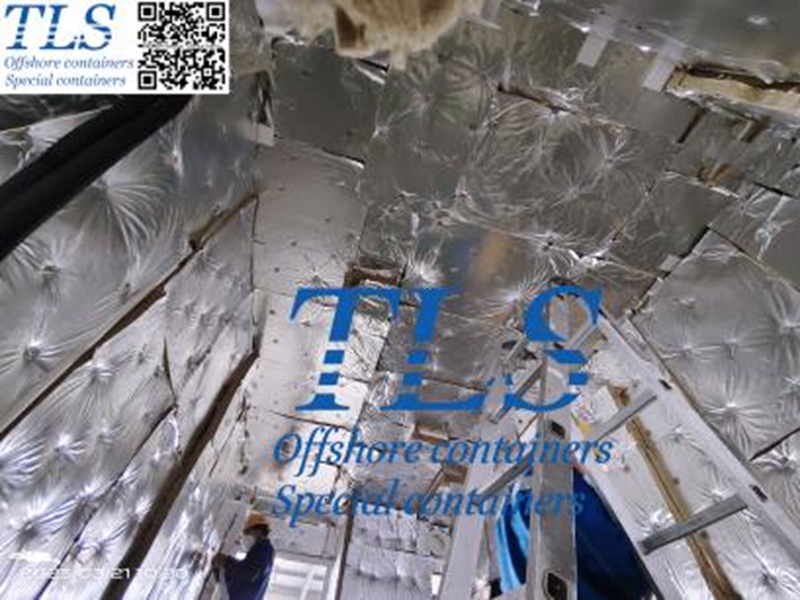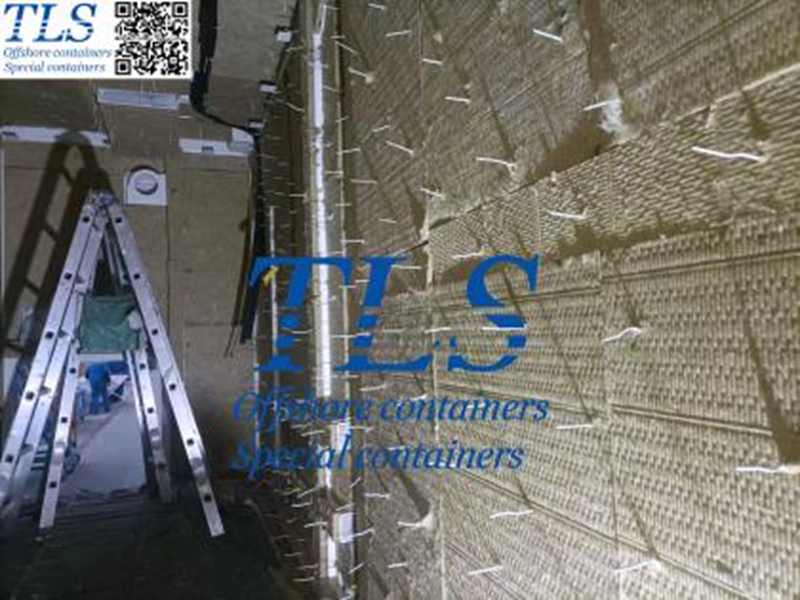|
Introduction: Container heat insulation and fire protection play a crucial role in safeguarding goods from external temperature fluctuations and fire hazards during transportation. This comprehensive guide outlines the essential aspects of designing an efficient heat insulation and fire protection system inside containers to ensure optimal safety and protection. Discover the key insulation materials, fireproof options, and the significance of meeting A60 fire protection standards for offshore containers. Section 1: Benefits of Rock Wool Insulation in Containers Rock wool, crafted from basalt or lava mineral fibers, emerges as an exceptional insulation material with several advantages:
Section 2: Choosing the Ideal Rock Wool Thickness and Density Designing an effective insulation scheme necessitates a comprehensive consideration of insulation requirements, cost, and durability. The appropriate thickness and density of rock wool should be determined based on these factors, taking care to adhere to relevant fire protection and environmental standards. Section 3: Designing the Insulation and Fire Protection Layers Consider the following aspects when designing the insulation and fire protection layers within containers:
Section 4: Implementing a Comprehensive Fire Protection System The container's fire protection system is a critical element, comprising fire water sources, fire sprinklers, smoke detectors, and more. These components work together to detect and combat fire outbreaks promptly, minimizing potential damage to goods. Section 5: Prioritizing Operator Safety Ensure the safety and well-being of operators by incorporating essential features like efficient lighting and ventilation systems within the container. Adequate lighting ensures clear visibility, while proper ventilation prevents the accumulation of harmful gases. Conclusion: Container heat insulation and fire protection design is a multifaceted project that demands a holistic approach. By considering factors like cargo characteristics, container properties, and budget constraints, you can develop a tailored and efficient heat insulation and fire protection scheme. Opting for rock wool insulation, meeting A60 fire protection standards, and implementing a comprehensive fire protection system will enhance the safety and security of goods during transportation, mitigating risks and potential damages. TLS Offshore Containers / TLS Special Containers is a global supplier of standard and customised containerised solutions. Wherever you are in the world TLS can help you, please contact us. #Container heat insulation #Container fire protection #Heat insulation materials #Fireproof materials #Rock wool insulation #A60 fire protection standard #TLS offshore containers #Container insulation design #Fireproof boards #Fireproof coatings Written by OliverComments are closed.
|
Archives
July 2024
Categories
All
|
- Home
-
Containerised solutions
- Intelligent pressurised container | MUD logging cabin
- Battery energy storage system (BESS) container
- Flexible grid tied battery storage system
- Laboratory container | workshop container | Equipment containers
- Temporary refuge shelter | Toxic gas refuge | Safe haven
- Offshore accommodation cabin | office container
- Reefer container | Refrigerated container
- Intelligent waste water treatment container
- Fresh water generator container
- Cargo Containers
- Product photos & videos
- News & Blogs
- Contact us
|
Featured products
Intelligent pressurised container Temporary refuge (TR) shelter, toxic gas refuge (TGR) Battery energy storage system (BESS) container Containerised waste water treatment plant Fresh water generator container Reefer container Laboratory container, Workshop container Accommodation container Offshore closed container |
All Rights Reserved 2020 © TLS Offshore Containers / TLS Energy
|


